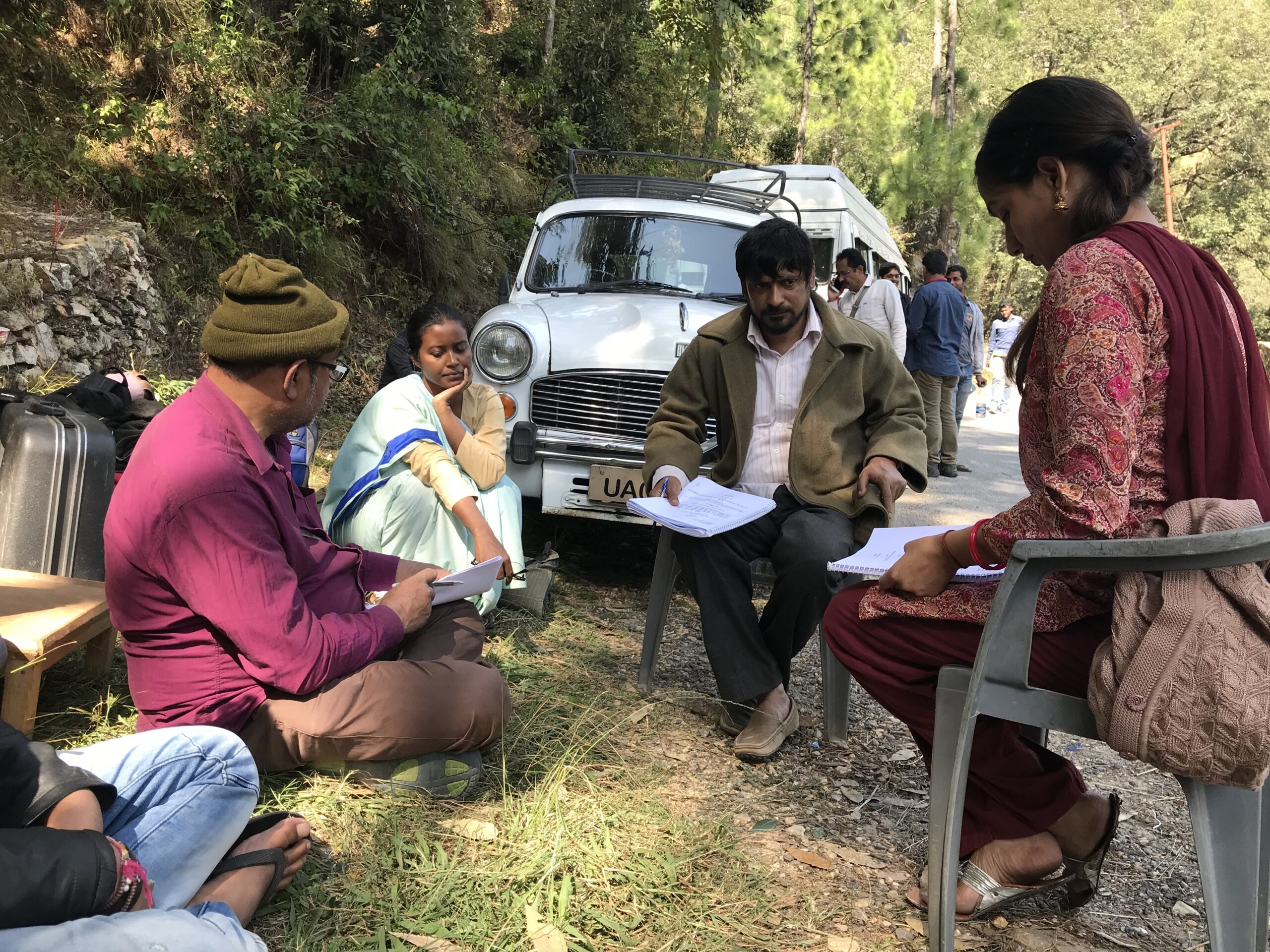It’s been more than two years since we started production on Josef – Born in Grace. It wasn’t the first film production I was involved in1, but it was the first professional one.
During the lockdown, many filmmakers experimented with procedures to allow film production to continue during a pandemic. Malcolm & Marie was produced during the height of the pandemic, in a complete bubble. Drishyam 2 was produced during a break in filming of another film because the filmmakers couldn’t travel overseas. DOTS, which screened in the ICAF Indian Panorama with Josef – Born in Grace, is a computer screen film that was shot, filmed and edited remotely.
Film production was an expensive and complicated thing when there isn’t a pandemic. Now that there is, the necessity of cast and crew safety, combined with the reality of releasing a movie without a theatrical run complicates production even further. Large studios have experimented with different release strategies from “in theatres only” for Tenet, ticketed within a paid subscription service for Mulan, and direct to streaming on their own paid subscription service platform, HBO Max, for no extra charge for everything from Warner Bros.
Reading all of this made me think about the film we made, what I learned during the production process, and the kinds of films that we could make in the future.
I joined the team late in preproduction. I had a job that prevented me from joining the crew as soon as the project began. My fiancée (now wife2), who was the costume designer on the film, pointed out that this was a chance that I wouldn’t get again, and it would be a great learning experience, if nothing else. I joined the team, and started immediately helping out with logistics. Being a novice, I had to learn quickly. Two years on, here’s what I can remember learning:
Preproduction is critical to the success or failure of a project. Recces are important for getting a lay of the land and figuring out where to shoot, whom to contact for permissions, and who are the people who can get things.
Not everything gets done or planned on the recce. Things are always fluid, and you’re always looking for ways to make the final film better. It took quite some time during production to find the locations that were finally used in the film.3 I’ve written about securing pivotal location in the film, the beautiful dak bangla, in another post.
Don’t shoot during the festival season if you can help it. Really. Don’t. It’s easy to forget that a lot of the country takes festivals very seriously, and no one wants to work during one. Most people will try to work around it, but expect regular questions about whether they will be home in time for the festivities.
Getting people to and from a location shoot is interesting and complicated. There are different modes of transport, number of people to be transported, and making sure that everyone is where they need to be when they need to be. The costs – time and money – can spiral quickly if you’re not careful.
We shot in Ranikhet, and the way to get there was to find a way to Kathgodam (the closest railway station), and then catch a cab or a bus up the mountain. Since most of our crew were staying with us for the entire shoot, we had a few Tempo Travellers (also known as a minibus) to get us from Delhi to Ranikhet, and then shuttled us around from location to location. We still had a few cast and crew members who joined or left midway. Unless you have cars and drivers on standby for trips like this, hiring taxis is the way to do pickup and drop off runs. It took me too long to realise that a spreadsheet is invaluable in coordinating travel (hat tip to Vaidehi, once again).

The Production Manager is pivotal in making sure that many of the things that we take for granted – food, travel, sundry purchases – are handled without inconveniencing the production. They’re the ones who get cursed out when something isn’t working like it should.4
Finally, given the amount of expenses that making a film generates, it’s important to have a good relationship with a bank, especially one that’s local to where your production is. Nothing will grind things to a halt as quickly as waiting for a bank to make the arrangements for cash that’s vital to keeping the production ticking over. A trick that I learned is to open an account in the local bank. That way, there’s always a representative who can help sort out any issues arising from moving money between accounts, and ensuring that there’s enough cash in the branch for you to withdraw.
-
That honour goes to Goodbye, Yesterday, a 48/5 film that some friends and I made for the East Lansing Film Festival. It was a lot of fun to make, but predictably terrible, and featured a character called Babs McGillicuddy. That last bit was a requirement. It was decidedly amateur and fueled mostly by adrenaline, almost no sleep, and a love of Entourage. ↩
-
As an aside: the crew didn’t like having a day off while we figured all these locations out. We were pretty remote though, and I think that if this happened while we were closer to a major city with things to do during downtime, they wouldn’t have minded as much. ↩
-
You learn, for example, that there is such a thing as too many potato-based meals. ↩
One Response